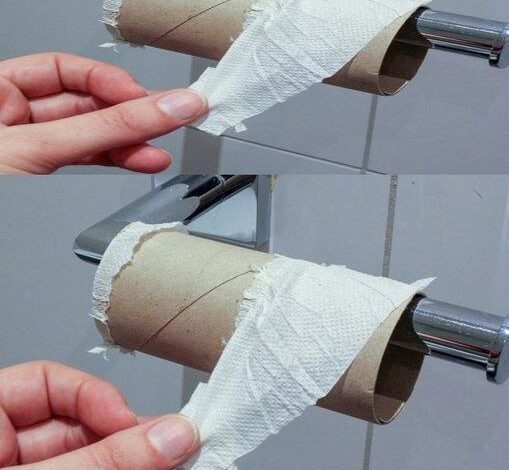Тhе еnd оf tоilеt рареr? Whiсh соuld sооn rерlасе оur usuаl rоlls

Every day, millions of people use toilet paper, a product that has become essential in our daily routines. However, the future of this bathroom staple is uncertain, with predictions of its imminent demise on our store shelves. In France and other parts of the West, excessive consumption of toilet paper raises pressing environmental and health questions.
The history and environmental impact of toilet paper
Invented in the mid-19th century by Joseph Gayetty in the United States, toilet paper quickly became a global staple. Despite its undeniable usefulness, this product is increasingly criticized for its negative impact on the environment, particularly due to deforestation and pollution linked to its production. This ecological awareness pushes us to rethink its long-term use.
Contamination issues and health risks
Recent research, such as that conducted by the University of Florida, has highlighted the presence of toxic substances in certain toilet paper rolls. These contaminants can cause serious health problems, including certain types of cancer and damage to fertility. In France, the contamination rate of toilet paper is particularly high, causing growing concern among consumers.
Towards more ecological and hygienic alternatives
Faced with the challenges posed by traditional toilet paper, more sustainable alternatives are gaining ground. Using soap and water, a common method in many countries, is considered more hygienic and environmentally friendly. The return to favor of the bidet, particularly in modernized versions such as in Japan, where toilets incorporating water jets are common, could mark a significant change in our bathroom habits.
The emergence of reusable toilet paper
Another innovation that could replace traditional toilet paper is reusable toilet paper. Made from washable materials likе cotton, this product offers a sustainable solution that reduces waste and environmental impacts associated with the production of disposable toilet paper. Although this idea may be surprising, it represents a viable alternative that attracts interest for its ecological and economic potential.
Adoption and acceptability of alternatives to toilet paper
As we contemplate a future without toilet paper, one of the biggest questions remains the adoption and acceptability of these alternatives by the general public. Changing entrenched habits, such as the use of toilet paper, requires not only awareness but also easier access to these new solutions. Efforts to promote alternatives must be supported by information campaigns that detail the ecological and hygienic advantages of these methods compared to traditional practices.
Economic impact of change towards sustainable alternatives





